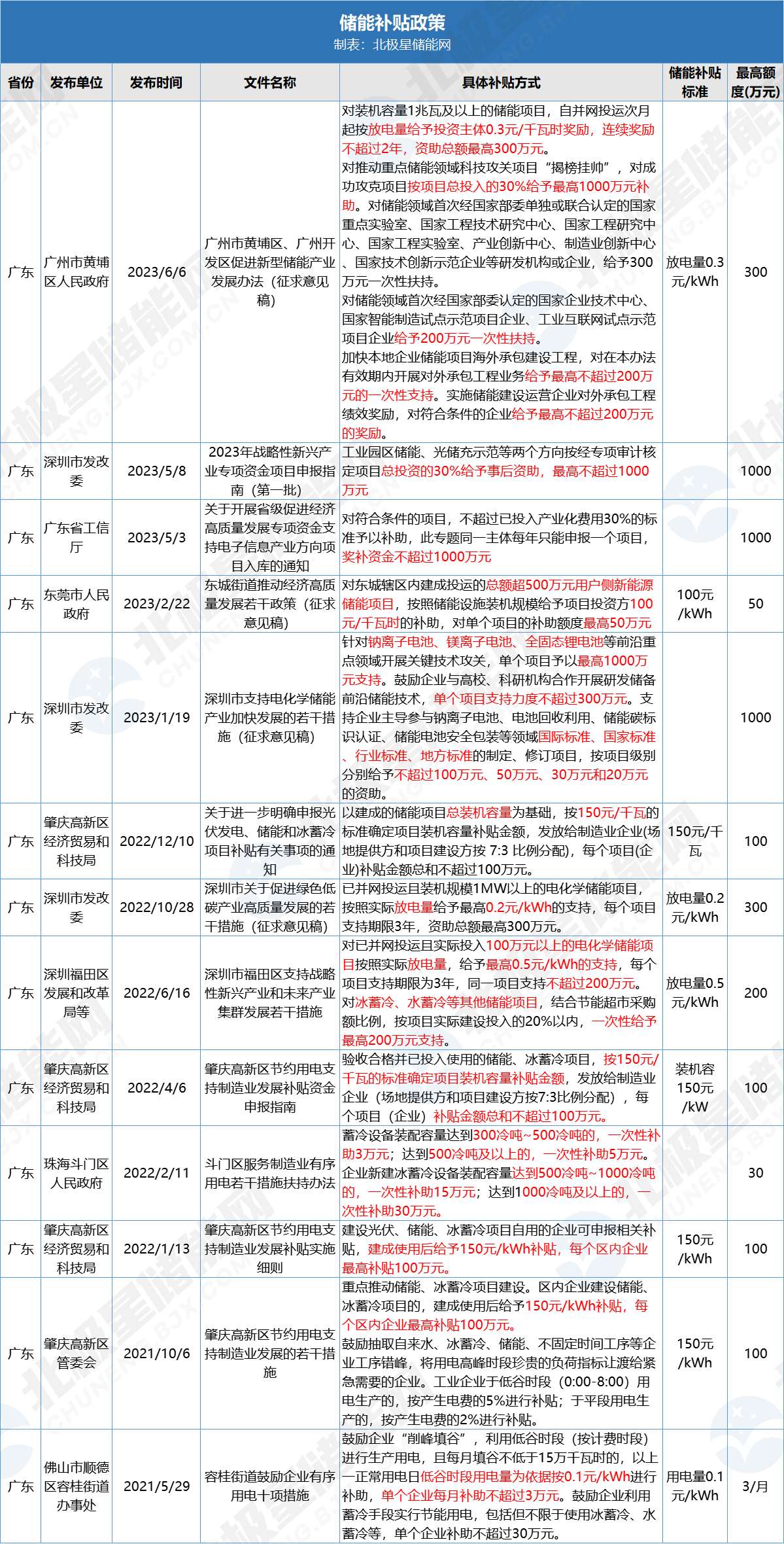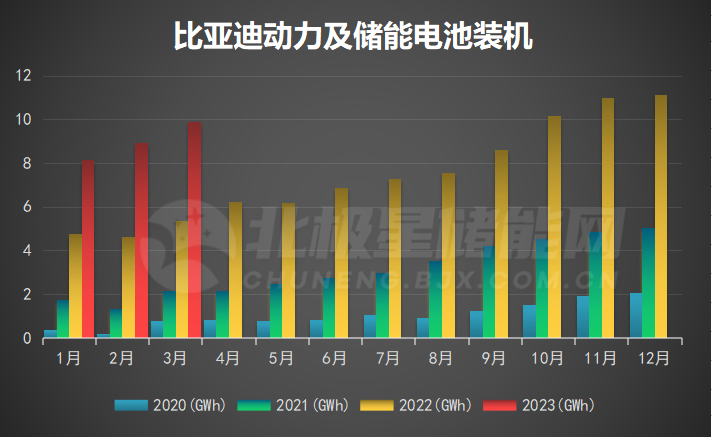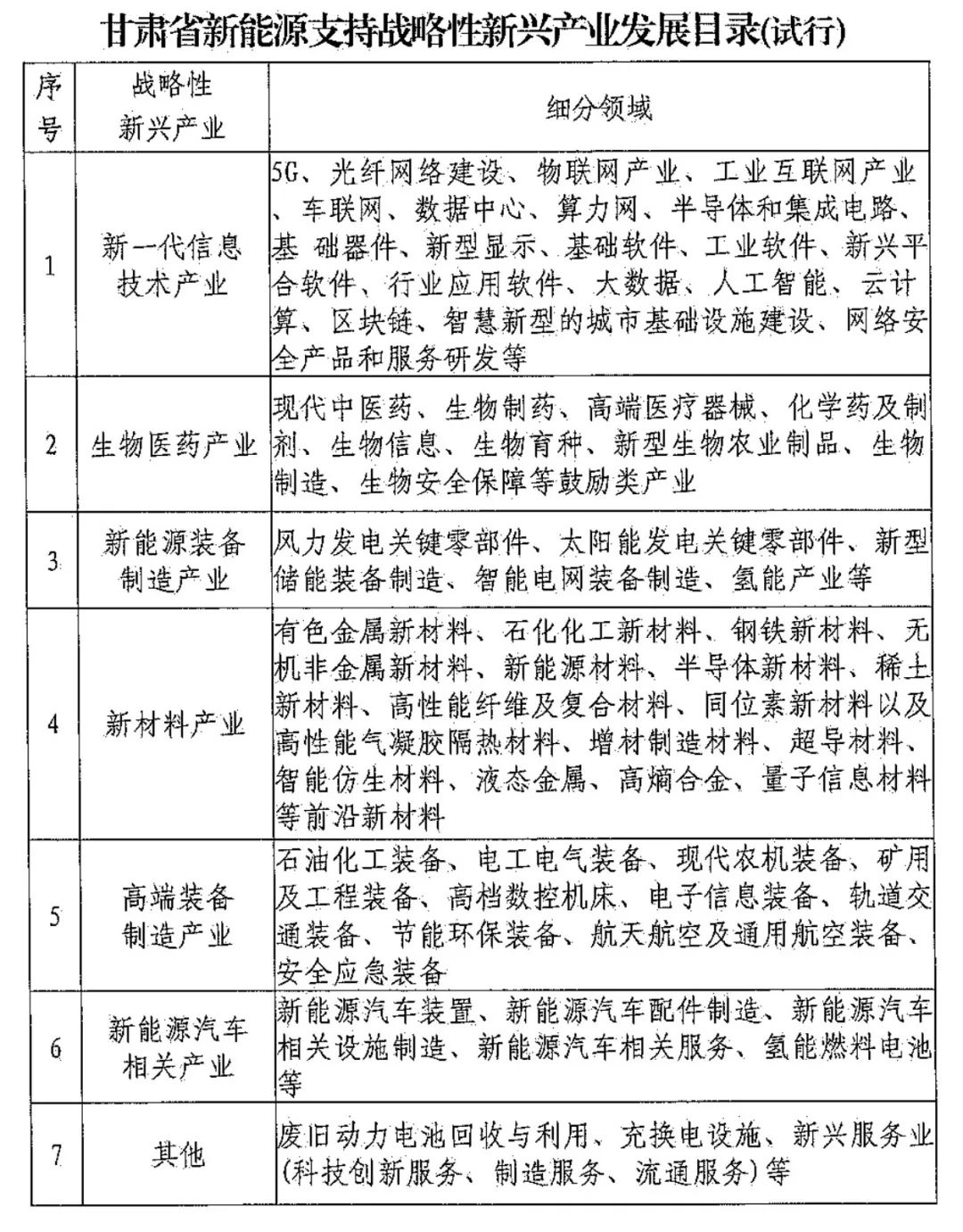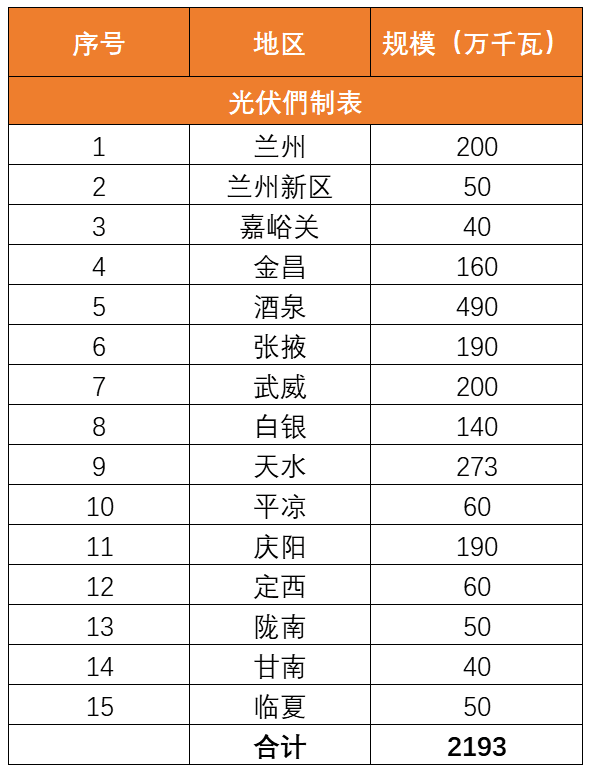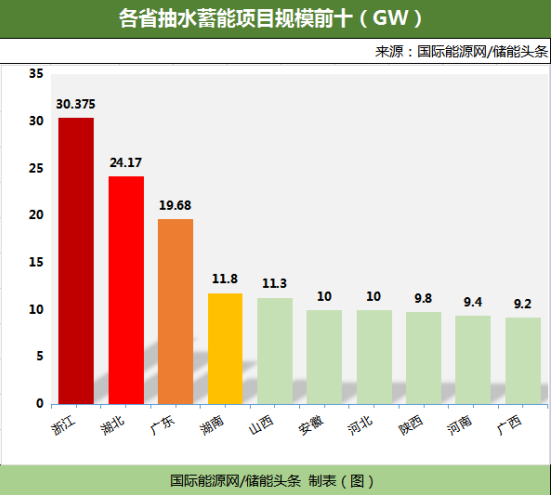网讯:未来几年,英国的电池存储市场将呈指数级增长,而要达到这一目标,还需要解决两大问题:电网连接问题和供应链问题。而这些问题的解决不仅需要政府政策的支持,还需要扩大本地的电池产能。
英国的储能容量到2030年可能增长超过10倍,但只有在解决电网连接和供应链问题的情况下才能实现。
UK storage capacity could grow more than tenfold by 2030 – but only if grid connection and supply chain challenges are addressed.
到2030年,可能会在英国投资200亿美元的储能市场。
$20 billion could be invested in UK storage by 2030.
但电网连接问题导致了多年的延误。
But grid connection problems causing years of delays.
英国必须投资国内电池制造产能。
But grid connection problems causing years of delays UK must invest in domestic battery manufacturing capacity.
市场对于英国电池储存市场的前景持乐观态度。Rystad Energy最近进行的一项分析得出的结论是,到2030年,英国的电池储存容量将从目前的2.1GW增加到约24GW。大量的资本将被投入到该行业,预计到本十年末,储能电池系统将吸引高达200亿美元的投资,这意味着英国将拥有足够的能源储备,可以为1800万户家庭提供一年的电力能源。
It’s easy to get excited about the prospects for the UK battery storage market. A recent analysis conducted by Rystad Energy concluded that battery storage capacity in the UK will increase from the current level of 2.1GW to around 24GW by 2030. Massive amounts of capital are set to be ploughed into the sector, with utility-scale battery systems expected to attract investments of up to $20 billion by the end of the decade. This will mean the UK has sufficient combined energy reserves to power 18 million homes for a year, the Rystad Energy study showed.
这将使英国成为全球储能市场的领跑者之一。如果产能水平达到预期,这意味着英国将占全球所有装机容量的近9%,英国将排在全球储能市场的第四位,仅次于中国、美国和德国。
It's a trajectory that would put the UK among the pacesetters in the global energy storage market. If the projected level of capacity is indeed attained, it will mean that the UK will account for 9% of all global capacity additions and will be ranked fourth by capacity behind China, the US and Germany.
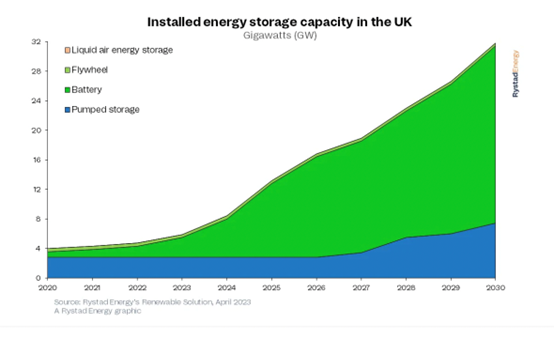
来源:Rystad Energ
为储能规划消除障碍
Removing planning hurdles for storage
坦白地讲,英国政府已经为蓬勃发展的储能业提供了政策支持。能源部专家认为,政府制定了雄心勃勃的储能需求目标,该目标是到2030年实现30GW的容量,包括电池、飞轮、抽水蓄能和空气储能。与此同时,规划部的改革举措也为英国储能业提供了诸多便利。2020年,政府制定了新的法规,目的是简化储能在规划建设中的处理流程。具体的,将除了抽水蓄能之外的电力储能从英格兰和威尔士的全国重要基础设施项(NSIP)体制中移除,并取消了《1989年电力法》第36条获得审批的规定。
In fairness, the UK government has laid some of the foundations for a flourishing energy storage industry. Energy sector experts have acknowledged that the government’s 30GW energy storage requirement target – including batteries, flywheel, pumped hydro and liquid air energy storage – for 2030 is ambitious. Meanwhile, reforms to the planning system are also viewed as having provided a shot in the arm for the UK’s storage industry. In 2020 new laws were introduced that simplified the treatment of storage under the planning system. Specifically, the changes to the law removed electricity storage (except pumped hydro) from the Nationally Significant Infrastructure Projects (NSIP) regime in England and Wales and also removed the requirement for consent under s.36 of the Electricity Act 1989.
实际上,这意味着电力储能项目的开发超过50 MW(英格兰)和350 MW(威尔士),就可以申请普通的规划许可证,而不必向国务卿申请开发许可令(DCO),这将减少NSIP制度对项目造成额外的成本和时间延误。
In effect, this meant that developers of electricity storage projects above 50MW in England and 350MW in Wales would be able to apply for ordinary planning permission for such schemes instead of having to apply to the Secretary of State for a development consent order (DCO). The rationale for the changes was that it would reduce the extra cost and time delays that the NSIP regime can often bring.
储能部署增加的困局
Barriers to increased deployment of storage
因此,在英国,常规储能项目的规模将大幅增加。在政策规划的引导下,那些非常具有挑战性的项目也将得以实施,例如单项容量超过1 GW的储能项目。据Rystad Energy介绍,如此规模的储能电池项目可能需要多达55英亩的土地,相当于40多个足球场地。
As a result, the usual size of battery energy storage projects in the UK is expected to increase significantly. We should see some individual projects weighing in at a hefty 1GW – projects of this scale would have been much more challenging from a planning perspective if the legal changes hadn’t been made. As Rystad Energy pointed out, a battery project of this scale could require as much as 55 acres of land, equivalent to more than 40 football fields.
但我们还需警惕过于乐观的市场,因为现存的一些障碍可能会成为储能行业迅猛发展的绊脚石。
But the storage community needs to guard against excessive bullishness as there are significant obstacles that could stop the storage sector from fulfilling its undoubted potential.
接下来依次分析:
Let’s take these in turn:
1.并网问题
1.Grid connection problems
储能项目的并网连接问题可能需要数年、甚至超十年才能解决。能源咨询公司Regen的首席执行官Merlin Hyman最近在下议院商业、能源和工业战略委员会(BEIS委员会)的口头听证会上表示,并网连接问题是所有业内人士关注的问题。他补充道:“在全国大部分地区,你申请新的太阳能发电站、电池、氢电解槽和大型电动汽车充电站,你将在15年后获得并网许可。而我们的(储能)目标比那还要早,这对整个能源转型计划来说显然是一个巨大的问题。”在同一听证会上,Centrica氢能公司负责人Will Mezzullo简洁的概况了现状:“目前,并网是受到严格限制的。他们根本不可能在电池系统或新能源系统网中投入更多。”
Securing a grid connection for an energy storage project can take years, sometimes even more than a decade. Merlin Hyman, chief executive of energy advisory business Regen, recently told a House of Commons Business Energy and Industrial Strategy Committee oral evidence hearing that grid connection was the key issue that everyone in the clean energy sector wanted to talk about. He added: “If you apply with a new solar farm, battery, hydrogen electrolyser, large-scale EV charger in most parts of the country, you will get a connection date in 15 years’ plus time. Given our [energy storage] targets are rather earlier than that, that is clearly a huge problem now for the whole net zero transition.” At the same hearing, Will Mezzullo, head of hydrogen at Centrica, summed it up succinctly: “At the moment, the grid is absolutely constrained. They physically can put hardly any more gridscale batteries or renewables on the network.”
2.供应链挑战仍然存在
2.Supply chain challenges persist
英国储能业发展受制于不成熟的供应链以及过度依赖海外生产。大多数英国电池制造商只生产比锂离子电池成本更低的钠离子电池。为了真正从低成本的钠离子电池中获益,英国必须加强制造能力。他们的理由是,这对于英国通过该方式减少碳排放以实现气候目标至关重要。从国内供应商采购电池产品,而不是从中国进口,可以最大限度地减少二氧化碳排放。
The advancement of the UK energy storage industry is being held up by an immature supply chain with an over-reliance on overseas production lines. This means that most UK manufacturers produce sodium-ion cells – which can be produced at a lower cost than, say, lithium-ion batteries – only in low volumes. To truly benefit from the much lower environmental cost of sodium-ion cells, the UK must build out manufacturing capacity onshore. The argument is that this is essential to truly fulfil climate goals by reducing the carbon footprint of the industry and that of the UK. Sourcing cell products from domestic suppliers, as opposed to importing from China, minimises CO2 emissions.
3.丞待长时储能发展的政策框架
3.No policy framework for long duration storage
要充分利用储能,包括抽水蓄能,英国政府需要制定长时储能政策框架。长时储能技术理事会强调”政策前景的不确定性”是长时储能商业化发展的主要障碍之一。推动长时储能发展的政策包括:制定容量目标和采购目标,将储能纳入电网规划工作;提高行业收入并提供长期稳定的创收机制,如差价合约、上下限、能源证书、购电协议和基础的资产监管政策;公私合作、补助和激励措施;以及有针对性的招标,以加快早期项目及其所需的基础设施建设。
Developing a policy framework for long duration storage – including pumped hydro – is viewed as crucial if the UK is to fully realise the potential of energy storage. The Long Duration Energy Storage Council has highlighted “uncertainty in the policy landscape” as one of the key barriers to the greater commercialisation of long duration storage. Better policy support for long duration storage would include: the setting of storage capacity targets and procurement targets, as well as the incorporation of energy storage into grid planning efforts; mechanisms that both enhance revenues and provide long-term revenue certainty such as contracts for difference, caps & floors, hourly energy attribute certificates, power purchase agreements, and the regulated asset base; public-private partnerships, grants and incentives; and targeted tenders to accelerate early projects and their required infrastructure.
解决了这些障碍,未来英国的储能市场前景将十分广阔。如前所述,英国政府表示,预计到2030年,国家需要至少30GW的“包括电力存储在内的低碳弹性资产”,以维持能源安全、有效地整合高水平的可再生能源发电。如果上述障碍被消除,英国不仅可以达到这一目标,而且有可能超越它。
Address the challenges, and the future for UK battery storage is very bright. As already highlighted, the UK government has said it anticipates that at least 30GW of “low carbon flexible assets, which includes electricity storage”, may be needed by 2030 to maintain energy security and cost-effectively integrate high levels of renewable generation. If the aforementioned obstacles are removed, there is every chance that the UK will not only reach this target, but surpass it.




